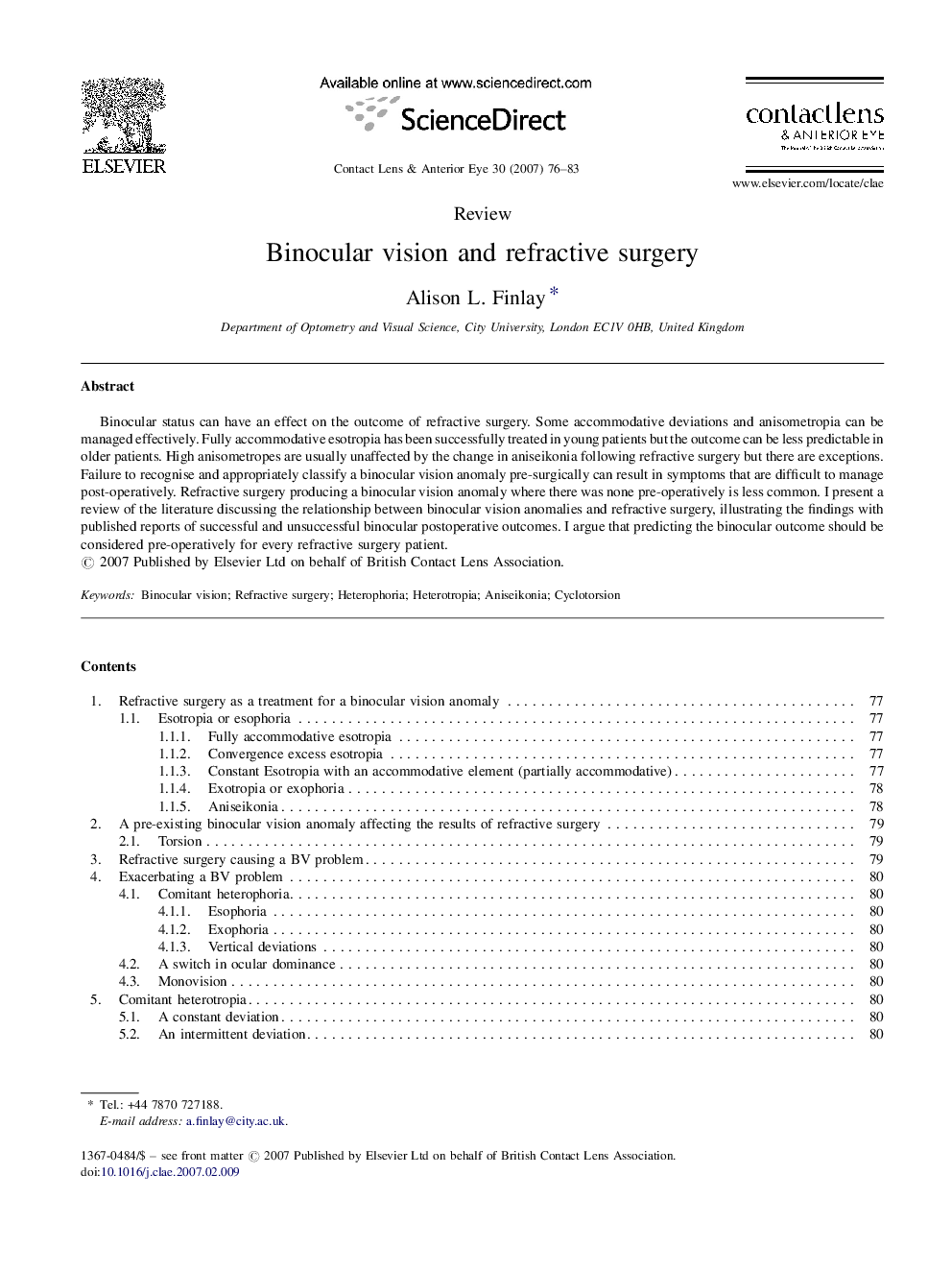| Article ID | Journal | Published Year | Pages | File Type |
|---|---|---|---|---|
| 2697164 | Contact Lens and Anterior Eye | 2007 | 8 Pages |
Binocular status can have an effect on the outcome of refractive surgery. Some accommodative deviations and anisometropia can be managed effectively. Fully accommodative esotropia has been successfully treated in young patients but the outcome can be less predictable in older patients. High anisometropes are usually unaffected by the change in aniseikonia following refractive surgery but there are exceptions. Failure to recognise and appropriately classify a binocular vision anomaly pre-surgically can result in symptoms that are difficult to manage post-operatively. Refractive surgery producing a binocular vision anomaly where there was none pre-operatively is less common. I present a review of the literature discussing the relationship between binocular vision anomalies and refractive surgery, illustrating the findings with published reports of successful and unsuccessful binocular postoperative outcomes. I argue that predicting the binocular outcome should be considered pre-operatively for every refractive surgery patient.
